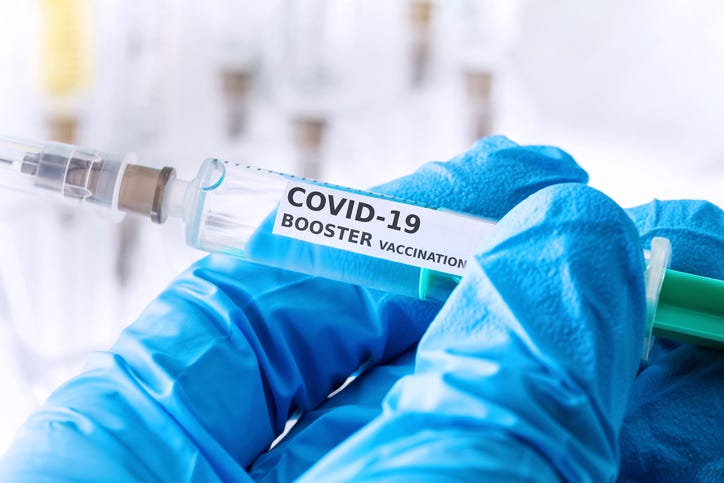
As the Omicron variant continues to spread throughout the country, some epidemiologists are discussing whether a vaccine booster is necessary for healthy adults under the age of 65.
Dr. Paul Offit spoke with News Talk 830 WCCO's Chad Hartman, saying we need to look at the variant differently.
Offit, the Director of the Vaccine Education Center and an attending physician in the Division of Infectious Diseases at Children's Hospital of Philadelphia, discussed what the goal of vaccines should be with the arrival of Omicron.
"I think what we need to do is to define what is the goal of COVID vaccines," Offit said. "If the goal of COVID vaccines is the goal we have for every vaccine, a reasonable goal which is to protect against serious illness, the kind that causes you to go to the doctor, hospital, or ICU. Then, in all likelihood, people who have gotten two doses of an mRNA vaccine or one dose of J&J vaccine will likely be protected against serious illness."
According to Offit, data from South Africa indicates that people who received two doses of an mRNA vaccine showed 70% efficacy from the virus. Because of this, he does not think that healthy adults should rush to get a booster.
On the other hand, he says that people over the age of 65 or those who are immunocompromised should still take the booster.
Offit continued saying most healthy people shouldn't need to take the booster if protecting against severe illness is the goal.
What happens if the goal of the vaccine is to prevent all symptoms? Dr. Offit says that a booster is a value to that goal, but one booster is not going to be enough.
"If we're trying to prevent cases and we're trying to prevent mildly symptomatic infections, it's going to be a very frustrating experience to do that because this won't be the last boost," Offit said.
Offit said that additional shots to prevent any type of infection only boost neutralizing antibodies that will, in time, fade.
When it comes to protecting against serious illness, Offit says it is done through immunological memory cells that are at high levels after two doses of an mRNA vaccine.
For those who are healthy adults under the age of 65 that get boosters, Offit says it will only offer protection from minor infections for so long before the neutralizing antibodies come back down.
"So what then? Do you want to get another boost, and then another boost," Offit asked. "I think what bothers me in this is that we've made this a three-dose vaccine for everybody, and I don't think we've made that case."
Offit says that the only people he sees in the hospital right now with COVID are the unvaccinated, which in his mind makes this a disease of the unvaccinated.
Because of who is being hospitalized and dying, Offit says that giving out boosters will not alter the arc of the pandemic or make much of a difference.
"Our total focus should be on vaccinating the unvaccinated, protecting the unprotected, rather than sort of further protecting people who are largely already protected," Offit said.
A critical point that Offit is seeing in the data right now is that there is no proof Omicron is deadlier yet. He said that when Beta and Delta went through South Africa, the country saw a spike in cases, hospitalizations, and deaths, but this hasn't been the case with Omicron.
He continued saying that it doesn't make sense to say that everyone needs a booster dose when there is no evidence that two doses are not protecting from deaths and hospitalizations.
But he acknowledged that we need to start looking at the pandemic through a different lens.
"I think we should stop following cases really, report on hospitalizations, ICU admissions, and deaths, and that will tell you how we are doing," Offit said.
Offit also does not think the term "breakthrough cases" should be used when describing those who are vaccinated and test positive because the vaccine is meant to stop severe illness, and it is doing that.
"A breakthrough implies failure," Offit said. "If this vaccine keeps you from having a severe infection, then that's what its goal is. If you have a mild illness and cold for a few days, that's not fun, but nonetheless, you've been protected from having a serious illness."



